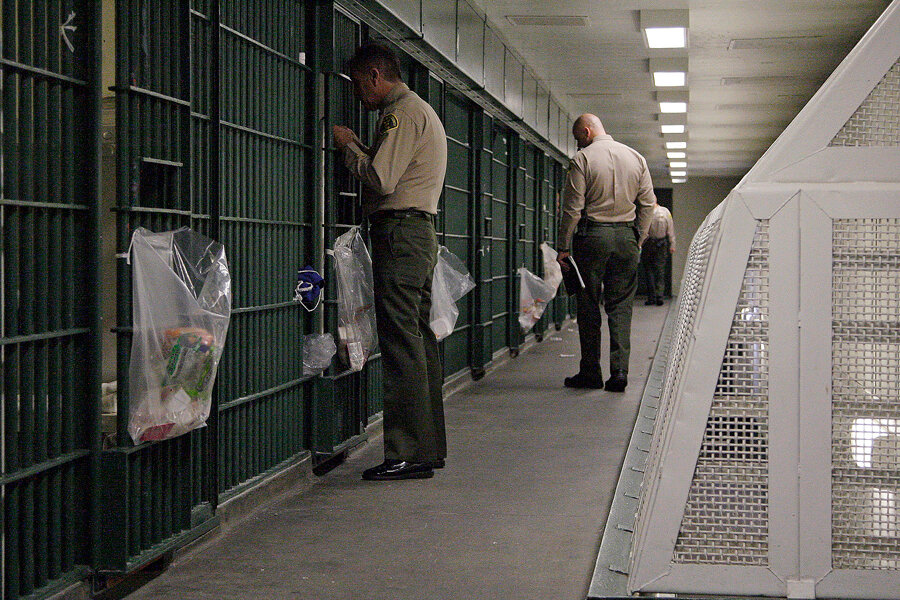Why LA’s troubled jails are getting a federal overhaul
Loading...
After years of scandal, Los Angeles County authorities have agreed to an overhaul of its jail system, which hopes to improve conditions for mentally ill inmates and help end a history of internal abuse.
The settlement between the Los Angeles County Sheriff’s Department and the US Department of Justice was announced Wednesday. In addition to mandating federal oversight, the deal establishes a series of extensive reforms for the nation’s largest jail system, home to as many as 20,000 inmates, according to the district court.
Changes from the 58-page agreement include more training for deputies and supervisors, greater inspection of jail operations, and the hiring of 500 new staff. More specialists will also be brought on board to better assess prisoners’ mental health, according to The New York Times.
About 20 percent of the county’s inmates are classified as mentally ill. These inmates will now be allowed out of their cells for longer periods of time and checked on more regularly, reports The Los Angeles Times.
The reforms come on the heels of a DOJ report last year that found officials were not doing enough to prevent inmate suicides, and discovered that some prisoners were living in vermin-infested facilities, according to Al Jazeera.
The new standards also come as some of the nation’s biggest prisons are facing scrutiny for their treatment of inmates, particularly when it comes to the mentally ill. In June, a similar settlement was reached at New York City’s Riker’s Island – the country’s second-largest jail system – after an investigation found that inmates were routinely abused. It now runs under federal oversight and has expanded its mental health services, according to Al Jazeera.
In Chicago, a psychologist is now running Cook County Jail, called the “largest mental institution in the country.” Her series of mental healthcare services for inmates are unprecedented, and offer new ground into the world of prison management, where wardens complain that “they lack the money and expertise needed to deal with the problem,” reported The New York Times.
LA County Sheriff Jim McDonnell declined to disclose at a news conference an estimate on how much the reforms will cost, though county officials have vowed to ensure funding is provided, according to The Los Angeles Times.
“But,” the report adds, “they note that the condition of the aging, dilapidated Men's Central Jail makes it difficult to implement some of the reforms, which include measures directed at the cleanliness of cells, pest control, and the removal of items in cells that could be used to commit suicide.”
“When you look at anything in the county, because of the scale of it, everything is very expensive. When you do the cost-benefit, you can't put a price on the humane treatment of those in our charge,” said Sheriff McDonnell. “This is our collective opportunity to be on the leading edge of reform and to become a national model.”







